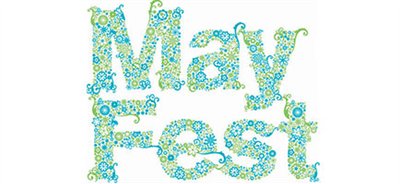
June 11, 2014, by Guest blog
English at May Fest
Mayfest, the University’s community open day, is always a highlight of the spring semester, and this year was no exception. With thousands of people from the local area enjoying the chance to explore campus, the School of English had prepared a few activities. Visitors could try their luck at matching Shakespeare quotations to the plays they came from, watched by a plastic version of Yorrick’s skull and a Shakespeare specialist who admitted sheepishly that she had misidentified one of the lines herself. They could puzzle over enigmatic descriptions of characters from young adult fiction from Tolkien to Twilight – a game which found some of the parents becoming curiously competitive and others weighing up the relative merits of Roald Dahl and Stephanie Meyer. And they could discuss the intricacies of placenames and surnames with two PhD students borrowed from the Institute of Name Studies, whose ability to spot a Celtic loanword at twenty paces has yet to be bettered.
A particular favourite this year was the room whose sign dared passers-by to “Come In and Meet the Vikings!” Inside a team of students ran workshops throughout the day, where children could learn about Norse storytelling traditions, write their names in runes, make their own paper longboats, put on replica armour and helmets, and generally revel in all things Viking. Led by Emma Vosper, this group have been taking their workshops to schools around Nottingham, and they kept the children enthralled for hours. The unusual strength of medieval studies at Nottingham, both in undergraduate teaching and research, gives our students particular insights into medieval culture, and the Viking room was a real hit with the visitors.
Mayfest gives the School of English a chance to open a conversation with the local community, to share some of the things we do, and ask how other people see language and literature. One of the most enjoyable aspects of the day is the conversations which result from a shared interest in a particular book, or a chance comment about medieval spinning, or a poem written on a poster. They put us in touch with the swathes of reading and speaking which go on just beyond the edges of the campus, and allow us to listen to what words mean to the people around us. Whilst guessing riddles and eating an awful lot of Starburst.
No comments yet, fill out a comment to be the first

Leave a Reply